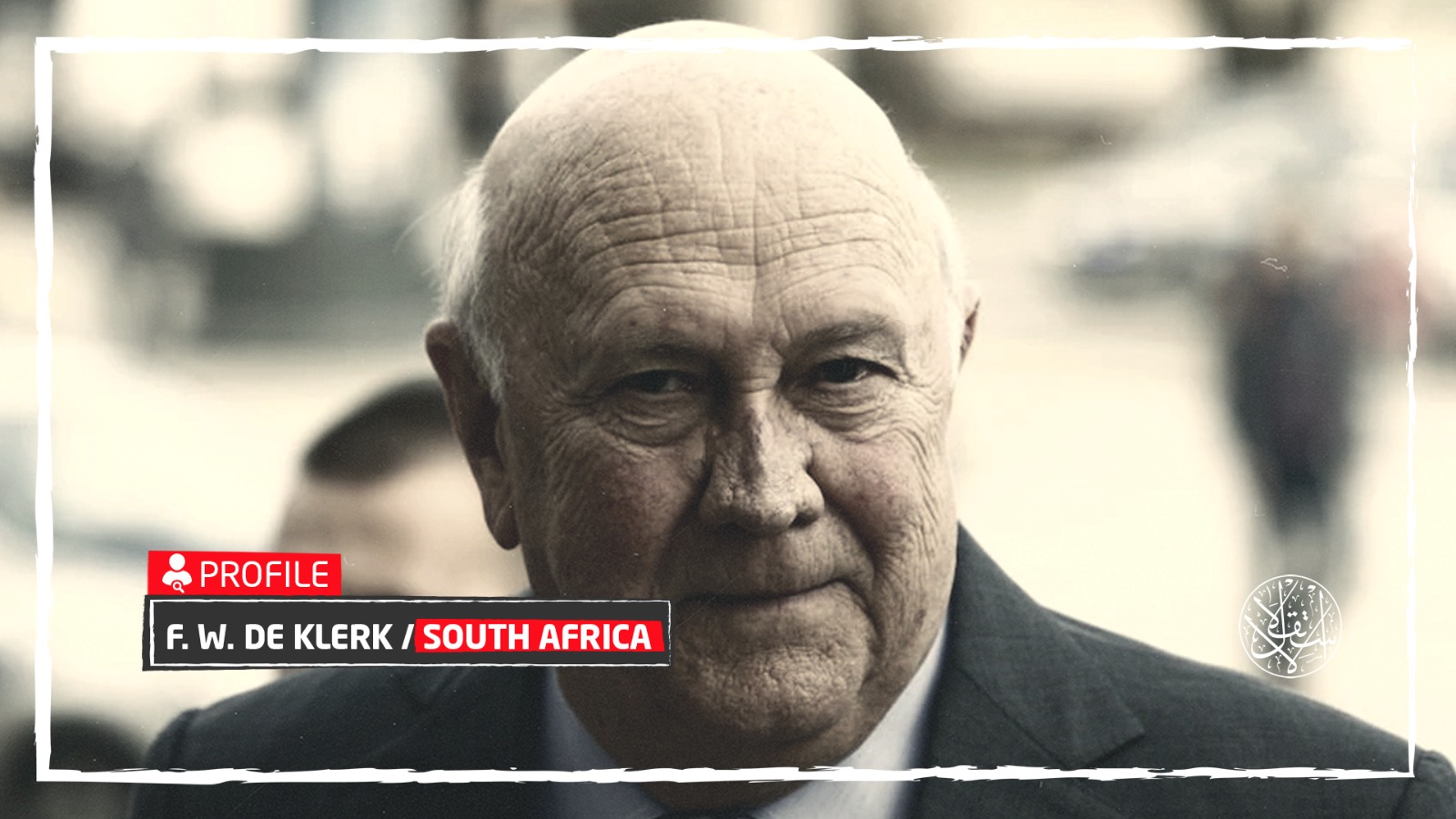F. W. de Klerk, South African President Who Oversaw End of Apartheid, Dies at 85

Yesterday morning, on November 11, 2021, the last white president of South Africa, Frederik Willem de Klerk, died after leaving a final apology through a recorded video for crimes against other ethnic groups during decades of apartheid.
F. W. de Klerk died at the age of 85 after losing a battle with cancer. South Africa’s last president ordered Nelson Mandela's release from prison, leading to historic polls and controversy where the anti-apartheid leader became the first black president.
In fact, de Klerk shared the Nobel Peace Prize with Mandela for helping to negotiate an end to apartheid. However, his complex legacy divides opinion in South Africa.
The Last Apology
At the age of 85, after a battle with cancer, the last white president of South Africa, Frederic Willem de Klerk died on November 11, 2021, leaving a final apology via video in which he expressed regret for the crimes committed against other ethnic groups during decades of apartheid and racism, according to BBC News.
"I, without qualification, apologise for the pain and the hurt and the indignity and the damage that apartheid has done to Black, Brown and Indians in South Africa," said de Klerk, who had previously showed remorse many times for the 1948-91 policy, as reported by Reuters.
"Allow me in this last message to share with you the fact that since the early 80s, my views have changed completely. It was as if I had a conversion," de Klerk said in the video message released by his foundation hours after his death.
"In my heart of hearts, I realized that apartheid was wrong. I realized that we had arrived at a place which was morally unjustifiable," he added, explaining that action was then taken to restore justice. The exact time of recording the video was not immediately clear.
In the same video, the former President also warned that South Africa faced many serious challenges, including what he called an undermining of the constitution.
Indeed, de Klerk won praise worldwide for his role in sweeping apartheid and shared the Nobel Peace Prize with Mandela in 1993. The next year, Mandela won South Africa's first multi-racial elections with his African National Congress.
Ending Apartheid
Born in Johannesburg, Frederic Willem was the son of Hendrina nee Coetzer and Jan de Klerk, a teacher. After being a qualified attorney for more than a decade, Frederic de Klerk gained a parliamentary seat for the National Party, that had introduced the system of apartheid in 1948. In February 1989, he was the head of the party after serving in several ministerial posts and the surprise was months later when he became president.
Actually, de Klerk had been a strong believer in apartheid, but after coming to power he publicly called for a non-racist South Africa.
He announced that he was removing the ban on parties that included Mandela's African National Congress, and that was in a famous speech to parliament in 1990, ordering Mandela's release after 27 years in prison.
His anti-racist actions helped bring an end to apartheid era in South Africa. In the light of his decisions, he became one of the country's two deputy presidents after the multi-party elections in 1994 that saw Mandela become president.
In 1997, de Klerk retired from politics saying: "I am convinced it is in the best interest of the party and the country."
Complex Legacy
Amid turbulent years leading up to the 1994 elections, many Blacks were angered by de Klerk’s failure to curb political violence, while right-wing white Afrikaners, who had long ruled the country under de Klerk's National Party, described him as a traitor to the value of whites, and their supremacy and nationalism. The reactions of South Africans reflected his complex legacy.
Although the relationship between de Klerk and Mandela was often punctuated by bitter disagreements, the new president described the man he succeeded as “someone of great integrity.”
In a statement on Thursday, the Nelson Mandela Foundation said that de Klerk would "forever be linked to Nelson Mandela in the annals of South African history."
"De Klerk's legacy is a big one. It is also an uneven one, something South Africans are called to reckon with at this moment," it added.











